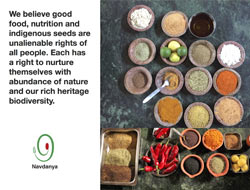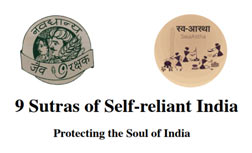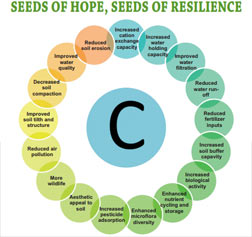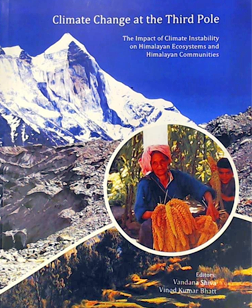On November 24, 2011, which was the third day of Parliamentary dead lock on issues of rising prices and neo- liberal economic policies that had created a severe economic crisis for the majority of Indians, the Government announced 51% Foreign Direct Investment (FDI) in multi-brand retail. In other words, opening the door to retail giants like Walmart to devastate the Indian retail economy as they have destroyed every economy where they have entered. In effect, the Government was saying to the people of India and Parliament “we don’t care about democracy”, “we will push the agenda of corporate rule even as the model collapses in its own countries of U.S and Europe”.
Commentators have presented the defense of the small farmers and the small retailer as ideology as if the blind commitment of the Government to giant retails is not an ideological commitment. The Prime Minister Manmohan Singh had made this ideological commitment in 2005 when he signed a US-India Knowledge Initiative in Agriculture to hand over India’s seed sector to gene giants Monsanto, India’s agricultural trade to grain giants like Cargill and ConAgra and India’s retail to retail giants like Walmart. In fact these corporations sat on the board of the U.S – India Knowledge agreement.
There is a claim being made that opening up Indian retail to FDI will develop backend infrastructure. Firstly, for our decentralized economy we already have a functioning infrastructure of Bazaars, Mandis and Haats which work at low cost and generate high employment and support the livelihoods of millions of farmers and 400 million people who are involved in small retail. Dr. Vandana Shiva, Founder Director of Navdanya called this model “the model for retail democracy”. The contrast is not between an organized retail controlled by Walmart and un-organised indigenous retail model. It is between self-organised and democratic retail vs a centralized corporate controlled model which profits at peoples cost by buying cheap from producers and suppliers. Secondly, the assumption that Walmart will develop backend infrastructure is totally falsified by the fact that since 2007, when Walmart was allowed to enter the wholesale distribution and Cash and Carry outlets in a joint venture with Bharti and it started to open Easy Day and Best Price box stores, it has invested nothing in the backend. It has in fact used the existing infrastructure offered by Indian companies. There is no reason to expect the next five years to be different. The Government must do an assessment of Walmart’s Cash and Carry venture before opening up the retail market blindly to them.
The decision of the Cabinet to allow 51% FDI in multi-brand retail is also constitutionally violative of the federal structure of our country and takes away the powers over retail that States have under the Constitution. Since this issue has far reaching implications for the livelihood of more than half of India, it must not be implemented till the States make their democratic decisions. The centre cannot undermine India’s federal structure by undemocratic decisions.
The so called conditions put on the FDI are an eyewash and are totally undone by the clause that says that corporations like Walmart will self certify whether they are meeting those conditions. Self certification by giant corporations is de-regulation.
Another myth that is constantly pushed to justify the corporate hijack of retail is the issue of waste. It is argued that 40% of horticulture produce in India is wasted because of the absence of the giant retail. This is totally false. In our decentralized and diversified economy nothing goes waste. Fruits and vegetables that go bad are eaten by cows or are composed. This recycling of organic matter is only possible in a decentralized system. In fact more and more data is now coming out that giant globalised retail is responsible for the waste of 50% of the food in the world as documented in recent books such as the “American Wasteland” by Jonathan Bloom and “Transforming Food Waste into a Resource” by Andrea Segre.
The final myth that is being promoted to justify Walmart entry is that farmers will get better prices. Nowhere in the world have corporations like Walmart and Tesco increased returns to producers. Their “Cheap Prices” policy is based on buying at extremely low prices from farmers often below costs of production, till the farmer is pushed out of farming after a few years of supplying to the retail chains. If the Monsanto model of seed monopoly has pushed our costs of production to such an extent that farmers are trapped in un-payable debt and 250,000 farmers have committed suicide, the Walmart model of retail monopoly will destroy farmers by buying below the cost of production and by robbing them of other markets through destroying other alternatives. This is a model for genocide. It cannot be allowed to spread in India


















